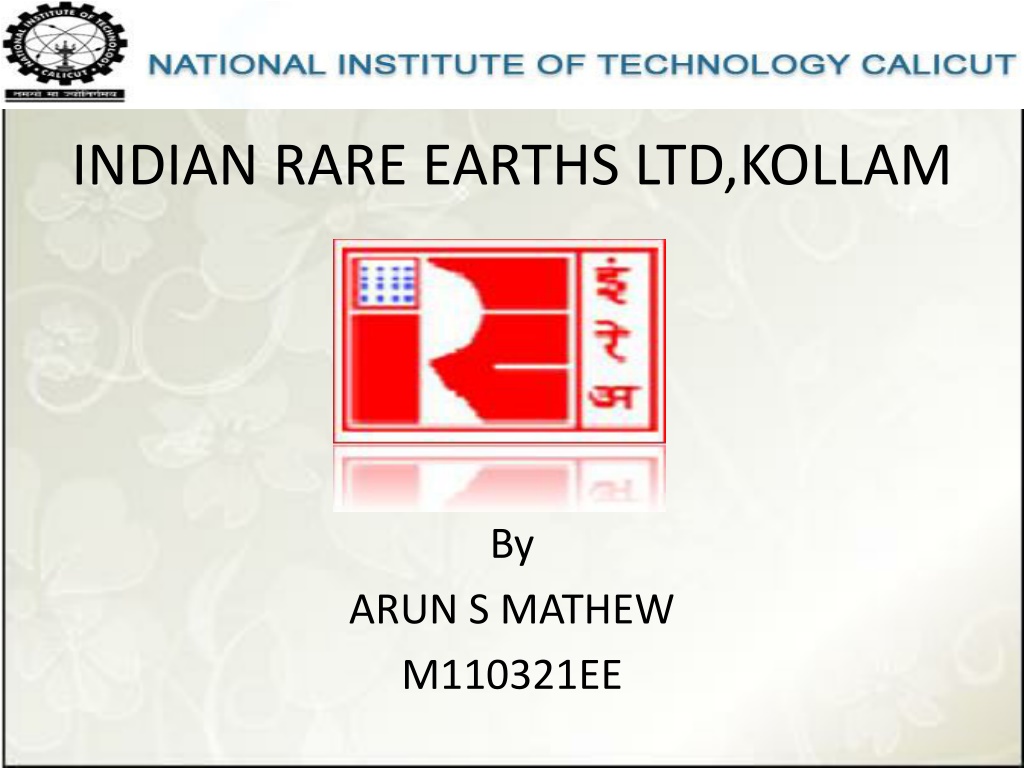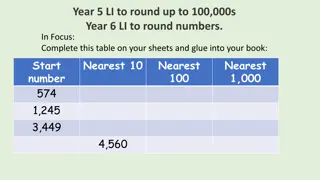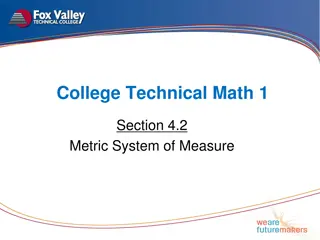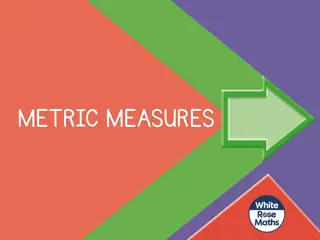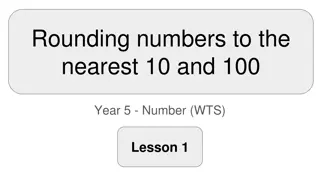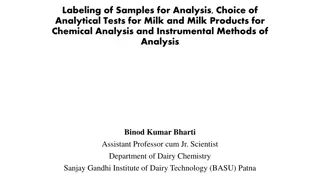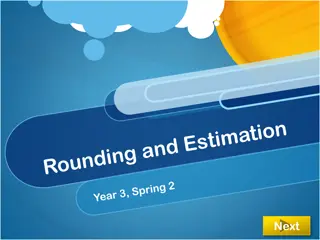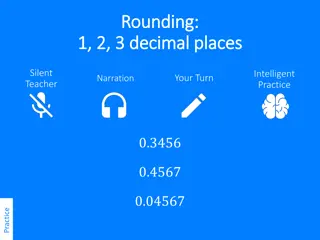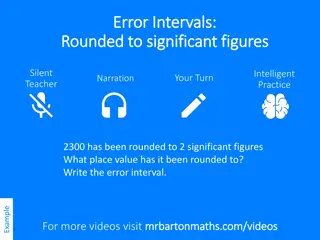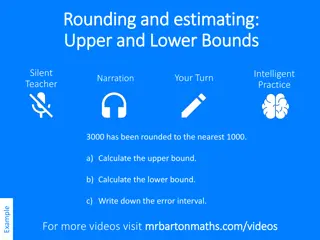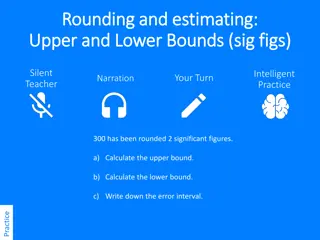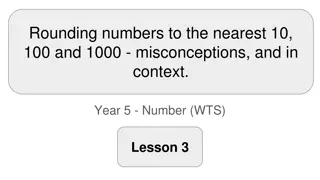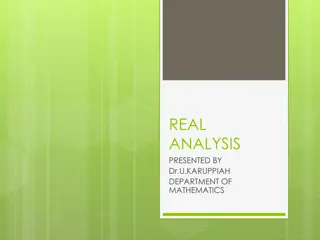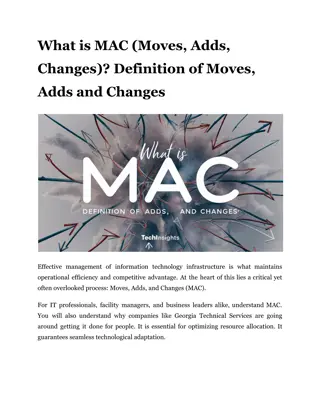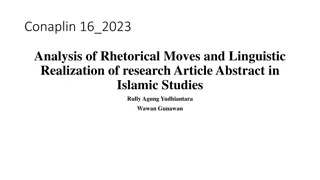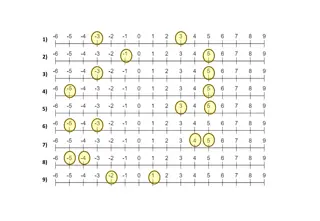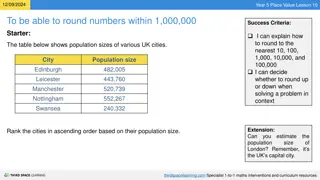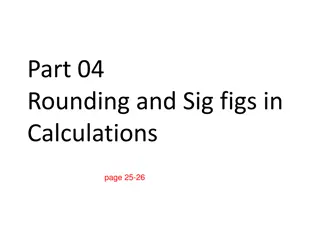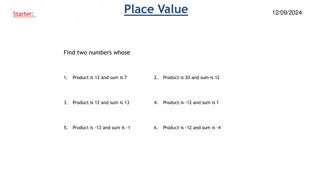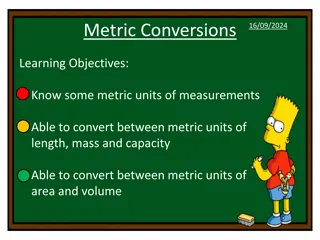Rounding-Based Moves for Metric Labeling
This work introduces rounding-based moves for metric labeling, exploring efficient move-making algorithms and linear programming relaxation. The method involves defining label sets, unary potentials, pairwise potentials, and utilizing expansion algorithms. It discusses complete rounding, interval rounding, hierarchical rounding, and their equivalence in solving labeling problems accurately. The approach involves iteratively defining labelings and solving easier sub-problems to optimize solutions effectively.
Uploaded on Mar 01, 2025 | 0 Views
Download Presentation

Please find below an Image/Link to download the presentation.
The content on the website is provided AS IS for your information and personal use only. It may not be sold, licensed, or shared on other websites without obtaining consent from the author.If you encounter any issues during the download, it is possible that the publisher has removed the file from their server.
You are allowed to download the files provided on this website for personal or commercial use, subject to the condition that they are used lawfully. All files are the property of their respective owners.
The content on the website is provided AS IS for your information and personal use only. It may not be sold, licensed, or shared on other websites without obtaining consent from the author.
E N D
Presentation Transcript
INDIAN RARE EARTHS LTD,KOLLAM By ARUN S MATHEW M110321EE
IREL PROFILE IREL is a Mining Industry under Atomic Energy of Energy, Govt of India. God s Own Country is blessed with long coastal belt. Kerala is endowed with heavy deposits of . Ilmenite . Rutile . Zircon . Monazite . Sillimanite
Products and Specifications Product Specification Specific Gravity Bulk density (kg/m) Major Application 1. Ilmenite TiO2-58% 4.45-4.54 2600-2630 TiO2 pigment, Ti metal 2. Rutile TiO2-95% 4.18-4.24 2630-2650 Used as flux in welding electrode industry 3. Zircon ZrO2-65% 4.60-40.7 2900-3000 In ceramics refractories, foundries & glass industry 4. Sillimanite Al2O3-58% 3.2-3.25 1950-2050 In refractory bricks, castable cordierites 5. Zirflor ZrO2-64% ------------- 1800-1850 In refractory and foundry coating, opacifier in ceramic industry 6. Micro Zir ZrO2-63.5% ------------- --------------- In ceramic glasses, heat resistant porcelain, refractories, plastics etc 7. Garnet Abrasive for sand blasting water jet cutting & glass polishing 8. Monazite Raw material for production of rare earth compounds
Magnetic and Electrostatic Properties of Sand components Components Magnetic Properties Electrostatic Properties Ilmenite Magnetic Conducting Rutile Non- magnetic Conducting Leucoxene Weakly magnetic Non conducting Monazite Weakly magnetic Non conducting Zircon Non-magnetic Non conducting Sillimanite Non-magnetic Non conducting Balance material Non-magnetic Non conducting
Advantages and Disadvantages Uniform particle mixing Uniform temperature gradients Ability to operate reactor in continuous state Disadvantages . High Exhaust temperature . As it is a single stage dryer, initial temperatures should be very.
Identifying Energy Conservation Opportunities Ideal Drying curve of FBD Drying curve of FBD at IREL
Calculation of SEC Input Supply Total Amps Total power consumed= ? ??? ?? ?.? = ??.???? Total working hours = 2X3=6 hours Energy consumption = 227.716 kWh Feed rate = 100 kg/hr SEC = 2.28 kWh/kg = 415V, 50 Hz = 66A
Suggestion 1 Introduction to spray dryer
Adding Spray dryer as the first stage Rating= 12.65W, 22 A Feed rate = 50 kg/hr. Assuming 70% increase in efficiency SEC of FBD reduces to 1.58 kWh/kg Energy consumption 158 kWh Cost of Energy consumption before implementation of spray dryer= 228X30X6= Rs. 41,040 Cost of Energy consumption after implementation of spray dryer= 158X30X6= Rs. 28,440 Saving per month= Rs. 12,600/- Initial investment= Rs. 5, 60,000/- SPP= 3.5 years
Suggestion 2 Convection Recuperators Flue type Recuperator Typical Recuperator
Significance of Recuperator in IREL Internal temperature Exhaust temperature Calorific value of fuel oil Cost of fuel oil For drying 100 kg of slurry energy required = 100X2.09X175= 36,575 kJ Fuel required for 100 kg = 0.85 kg Cost of fuel oil =Rs. 25.50/- Assuming efficiency of 40% and thereby increasing the temperature of primary gas from 25 C to 64 C For drying 100 kg of slurry energy required = 100X2.09X136= 28,424 kJ Fuel required for 100 kg = 0.66 kg Cost of fuel oil =Rs. 19.83/- SPP = 1.63 years = 200 C =160 C = 43,000 kJ/kg = Rs. 30/kg
